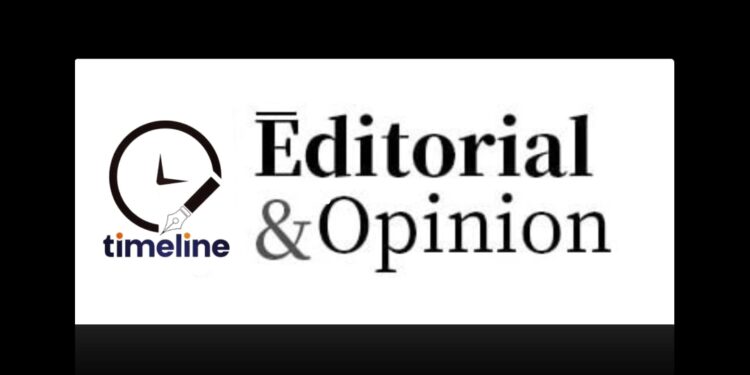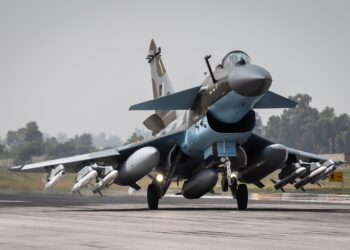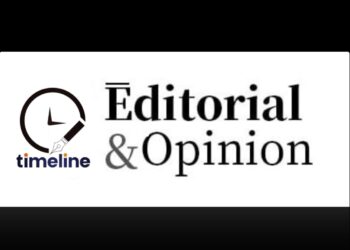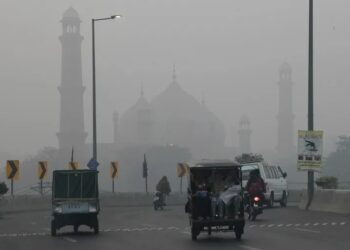Written by: Abdul Basit Alvi
Elections are often hailed as the cornerstone of democracy, and this assertion goes beyond mere rhetoric to reveal a fundamental truth about democratic systems. They are the primary means by which citizens express their political preferences, hold leaders accountable, and influence the direction of their communities and nations. To grasp the significance of elections, one must consider their role and impact on governance, representation, and societal stability.
At the heart of democracy is the concept of governance by and for the people. Elections operationalize this principle, allowing citizens to select their leaders and determine policy directions. This process ensures that those in power are chosen by the electorate rather than through inheritance, force, or arbitrary appointment. Regular, free, and fair elections are essential for maintaining a government that is both accountable and responsive to its citizens’ needs.
Elections are crucial for ensuring accountability. By voting, citizens essentially endorse or reject the performance of current leaders. This accountability mechanism makes leaders aware that their political survival hinges on the electorate’s satisfaction. If leaders do not meet expectations or act in the public interest, elections offer a formal opportunity for voters to remove them from office, thereby fostering transparency and reducing corruption.
Another core principle of democracy is its representation of diverse voices and perspectives. Elections enable people from various backgrounds and viewpoints to influence governance. This inclusivity ensures that a broad spectrum of interests and concerns are addressed, leading to more comprehensive and equitable policymaking. Electing representatives who mirror the demographic and ideological diversity of society contributes to a fairer governance structure.
Moreover, elections serve as a catalyst for civic engagement. They encourage individuals to stay informed about political issues, participate in debates, and discuss their society’s future. This engagement fosters a more knowledgeable and active citizenry, which is vital for the health of any democracy. When people are involved in the electoral process, they are also more likely to engage in other aspects of civic life, such as community service and advocacy.
Elections also reinforce the social contract, the implicit agreement between the government and its citizens where the latter consent to be governed in exchange for protection and welfare. Fair elections bolster this contract by allowing people to express their consent or dissent. When elections are conducted fairly and reflect the people’s will, they strengthen government legitimacy and build trust between the state and its citizens, which is crucial for societal stability and cohesion.
Finally, a hallmark of a stable democracy is its ability to manage leadership transitions peacefully. Elections provide a structured, non-violent method for changing administrations, helping to avoid conflicts that might arise from power struggles or coups. Smooth transitions of power are crucial for preserving social order and upholding democratic institutions. Transparent elections are a key component of democratic governance, guaranteeing that electoral processes are carried out with openness, fairness, and accountability. Numerous countries globally have established exemplary standards for election transparency, using a mix of legal frameworks, technological advancements, and civic involvement to ensure the integrity of their democratic systems. As the foundation of democracy, elections must be transparent to maintain their credibility. In India, the so-called largest democracy in the world, the electoral process is vital for shaping political leadership and governance. Concerns about transparency have consistently troubled Indian elections, affecting both public trust and the democratic process. A major issue is the administration of the electoral process itself. Voter lists in India frequently contain errors, such as incorrect details or entries for deceased individuals. Delays in updating these lists and the lack of a user-friendly system for voters to verify and correct their information compromise the voting process’s integrity. Although the Electoral Commission of India (ECI) is intended to be an independent body overseeing elections, there are ongoing concerns about its autonomy and effectiveness, with allegations of political interference and insufficient resources undermining its ability to ensure complete transparency.
Electoral funding poses another significant transparency challenge. The financing of political campaigns is often opaque, with political parties required to disclose their funding sources but frequently providing incomplete or inaccurate information. The use of unaccounted cash, or “black money,” distorts election fairness and creates an uneven playing field. Poor enforcement of existing regulations on political funding and inadequate monitoring mechanisms further exacerbate the issue, allowing for potential misuse of funds and undermining transparency.
Media also plays a critical role in transparency but faces its own challenges. The spread of misinformation and fake news, particularly on social media platforms, influences voter perceptions and decisions, distorting the electoral process. Media bias, whether for or against certain candidates or parties, affects the impartiality of election coverage and skews public opinion.
Electoral violence and intimidation are serious problems that affect transparency. In some areas, such violence prevents voters from participating freely and impacts the ability of election officials and observers to perform their duties transparently. Ensuring adequate security at polling stations and during vote counting is essential to maintaining transparency, but in some cases, insufficient security measures undermine election credibility.
Finally, while technology could enhance electoral transparency, its implementation in India has faced challenges. The use of Electronic Voting Machines (EVMs) remains controversial, with ongoing allegations of tampering and malfunction. These issues are compounded by public mistrust and a lack of understanding of the technology, which further complicates efforts to ensure transparency. While the introduction of Voter Verifiable Paper Audit Trails (VVPATs) was intended to create a paper trail for verifying Electronic Voting Machine (EVM) results, concerns about the effectiveness and adequacy of these measures in ensuring transparency persist. The integrity of Indian elections has been questioned multiple times, with allegations of rigging and misconduct frequently emerging. In the 2021 West Bengal Assembly elections, allegations of rigging and misconduct were particularly notable. The ruling Trinamool Congress (TMC) was accused by opposition parties, including the Bharatiya Janata Party (BJP), of using intimidation and manipulation to influence the results. Reports alleged ballot box tampering, voter intimidation, and biased behavior by polling officials. The Election Commission of India (ECI) faced criticism for its response to these allegations. Despite investigations, the controversy underscored the difficulties in ensuring election integrity amid a highly charged political climate. The 2017 Uttar Pradesh Assembly elections, which resulted in a decisive victory for the BJP under Chief Minister Yogi Adityanath, were overshadowed by allegations of electoral rigging and malpractice. Accusations included bribery and manipulation of voter lists, with reports indicating transparency issues in the voting process and inaccuracies in voter rolls in certain areas. Although the results were ultimately upheld, these controversies fueled ongoing discussions about the effectiveness of electoral safeguards in the state.
Similarly, the 2021 Tamil Nadu Assembly elections saw allegations of electoral misconduct, including the distribution of cash and other incentives to voters, a practice referred to as “vote-buying.” Both major parties, AIADMK and DMK, were accused of engaging in such practices. Despite the Election Commission of India’s efforts to address these issues through special teams and monitoring of expenses, concerns about the enforcement of election laws and anti-corruption measures persisted.
In the 2020 Bihar Assembly elections, held during the COVID-19 pandemic, allegations of rigging and fraud emerged, with the opposition accusing the ruling NDA alliance of manipulating the election process, including tampering with electronic voting machines (EVMs) and intimidating voters. The Election Commission faced criticism for perceived lapses in ensuring a fair election, with observers questioning the robustness of the electoral process.
The 2018 Karnataka Assembly elections also experienced controversy, with allegations of rigging and manipulation related to EVMs and voter lists. Discrepancies in vote counts and issues with electronic voting machines were reported. The Congress party, then in opposition, expressed concerns about the transparency and reliability of the voting process, leading to calls for a thorough investigation. Despite these issues, the results were accepted, but the controversies highlighted the need for continuous improvements in the electoral system.
The situation in IIOJK is also deteriorating, with numerous reports of human rights abuses and atrocities. The conflict over Jammu and Kashmir, originating from the 1947 partition of British India, remains unresolved. The princely state of Jammu and Kashmir, which had a predominantly Muslim population but a Hindu ruler, became a contentious issue. Its accession to India led to the first of several wars between India and Pakistan and has been the epicenter of ongoing conflict. In August 2019, India abrogated Article 370 of its Constitution, which had granted special autonomy to Jammu and Kashmir. This move, heavily criticized by Kashmiris, Pakistan, and various international entities, led to heightened security measures and a communications blackout in the region. Numerous human rights organizations, international bodies, and local activists have documented diverse reports of atrocities in IIOJK. Frequent reports highlight extrajudicial killings, often termed “encounters” by Indian security forces, involving innocent Kashmiris killed without trial. There are also cases of individuals killed under questionable circumstances, raising concerns about due process and accountability. Enforced disappearances, where individuals are taken by security forces and their whereabouts remain unknown, are reported frequently, causing prolonged uncertainty and distress for families. Arbitrary detentions of political activists, journalists, and ordinary citizens without formal charges or trials are also significant issues in IIOJK. Reports suggest that detainees in IIOJK frequently endure severe conditions and torture, including physical mistreatment and psychological distress. The Indian government has enforced stringent limitations on freedom of expression and the press in the region. Journalists and media outlets covering the situation face censorship, harassment, and even arrest. The communications blackout following the abrogation of Article 370 has further restricted information flow and hindered journalists and activists from documenting and reporting on abuses. The ongoing conflict and security operations have profoundly impacted the civilian population in IIOJK, with curfews, lockdowns, and frequent internet shutdowns disrupting daily life and affecting access to education, healthcare, and economic activities. The heavy security presence and regular clashes have fostered an atmosphere of fear and repression.
Internationally, concerns about the situation in IIOJK have been raised. Human rights organizations such as Amnesty International and Human Rights Watch have condemned the reported abuses and called for independent investigations. The United Nations has voiced concerns about human rights violations and urged for a peaceful resolution to the conflict.
Addressing the reported atrocities in IIOJK presents several challenges. Limited access for independent observers and journalists makes it difficult to document and verify abuse reports. The communications blackout and movement restrictions further complicate accurate assessment of the situation. Additionally, India’s legal framework and the complex security environment in IIOJK create obstacles to holding perpetrators accountable, with investigations and prosecutions often facing bureaucratic and political barriers.
The call for self-determination in IIOJK is deeply rooted in historical, political, and social contexts. The region’s predominantly Muslim population has long felt politically and economically marginalized. The abrogation of Article 370 and subsequent changes to the region’s status have intensified feelings of disillusionment and alienation. Many residents view these developments as undermining their special status and autonomy. For a significant portion of the population, the aspiration for self-determination and affiliation with Pakistan is closely linked to their cultural, religious, and political identity. The majority Muslim population aligns more with Pakistan, seeing it as a natural ally culturally and historically. Economic development in IIOJK has lagged behind other regions of India, resulting in widespread unemployment and underdevelopment. Many residents believe that joining Pakistan could offer a more promising economic future and help resolve of their socio-economic issues. Meanwhile, IIOJK continues to encounter major challenges with its electoral processes. Despite being part of one of the world’s largest democracies, India has faced criticism for how elections are managed in IIOJK. The electoral process there is hindered by both historical and current issues, including insurgency, separatist movements, and a significant security presence. These factors often result in delays or postponements of elections, contributing to ongoing instability and uncertainty. The dissolution of the state assembly and direct rule from New Delhi have introduced political uncertainty, leading to delays in election scheduling. The lack of an elected government has contributed to these delays. Persistent allegations of electoral manipulation in IIOJK, including voter suppression and intimidation, undermine the fairness of the process and deter participation. Claims of vote rigging and electoral fraud suggest that the process is manipulated to benefit specific political parties or candidates, damaging the credibility of elections and increasing public skepticism.
Transparency is essential for fair and credible elections, yet there have been reported issues in this regard. The presence of independent observers is crucial for ensuring transparency, but in IIOJK, restrictions on observer access—both domestic and international—have raised concerns about the process’s impartiality and integrity. Periodic communication blackouts, often imposed for security reasons, have hindered media and civil society efforts to monitor and report on elections, leading to accusations of hidden agendas and diminished public confidence.
The abrogation of Article 370 in August 2019, which ended Jammu and Kashmir’s special status, has significantly altered the region’s political landscape and electoral process. The reorganization of Jammu and Kashmir into two union territories—Jammu and Kashmir, and Ladakh—has centralized control and shifted political dynamics, further delaying elections and complicating efforts to establish representative governance. The increased Indian military presence since the abrogation has created an environment of heightened surveillance and control, which impacts citizens’ ability to participate freely in elections. Reports indicate that this military presence fosters fear and intimidation.
Many local political parties and leaders have boycotted elections, citing concerns over the process’s fairness and legitimacy. This boycott adds complexity to the political situation and impedes efforts to conduct inclusive and representative elections. The electoral issues in Indian-Administered Jammu and Kashmir (IIOJK) have drawn significant attention from both international and domestic observers. International human rights organizations have raised concerns about the electoral process in IIOJK, citing problems such as voter suppression, lack of transparency, and accusations of electoral manipulation. Domestically, there have been calls for reforms to ensure that elections in IIOJK are fair and transparent.
India has a track record of irregularities in conducting fair elections in IIOJK. The integrity of the electoral process in the region has been intensely debated, with the area’s ongoing conflict and complex territorial disputes contributing to numerous allegations of electoral rigging. These claims suggest that various strategies and tactics may have been used to influence election outcomes and undermine the democratic process. The electoral history of IIOJK is deeply linked to its political and territorial conflicts. The 1987 assembly elections, the 2014 legislative assembly elections, and more recent local body elections in IIOJK have all faced allegations of manipulation, reflecting broader concerns about the fairness and transparency of the electoral process in the region. The 1987 elections in Jammu and Kashmir are frequently cited as a critical case of alleged electoral rigging, with widespread criticism for irregularities such as ballot stuffing, vote tampering, and manipulation of voter lists. Opposition parties, especially those challenging the National Conference (NC), encountered significant obstacles, including systematic falsification of results and voter coercion.
The 2014 assembly elections, held after the abrogation of Article 370, were also marred by controversy, with allegations of discrepancies in voter rolls, malfunctioning Electronic Voting Machines (EVMs), and voter and candidate intimidation. Reports indicated issues such as long delays at polling stations and problems with voting technology, fueling skepticism about the legitimacy of the results and the overall fairness of the process.
Local body elections in 2019 and 2020 faced similar scrutiny. Allegations included manipulation of voter lists, biased allocation of polling stations, and instances of voter intimidation. Irregularities such as problems with ballot handling and results reporting were reported, raising concerns about the effectiveness of local governance and the ability of elected representatives to genuinely reflect their constituents’ will.
Recurring patterns in allegations of electoral rigging in IIOJK include discrepancies in voter lists, with reports suggesting the inclusion of deceased individuals or the exclusion of eligible voters, undermining the accuracy of representation and the election’s credibility. EVMs have been criticized for malfunctioning and tampering, with claims of inconsistent results and altered outcomes. Additionally, reports of voter and candidate coercion and limited access for media and independent observers have further eroded trust in the electoral process. Restrictions on reporting and monitoring can hinder the accurate documentation of electoral irregularities and intensify public skepticism about the electoral process. The allegations of rigging in IIOJK’s elections have far-reaching consequences. Persistent accusations undermine public trust in both the electoral system and democratic institutions. When voters and political actors view the system as flawed, it diminishes the legitimacy of elected representatives and governance. Such accusations can also heighten existing tensions and conflicts in the region, potentially leading to greater political instability and dissatisfaction among the population. As a result, there have been increasing calls for electoral reforms to enhance transparency and fairness in the process. Ensuring that elections are free, fair, and credible is crucial for restoring public confidence and advancing democratic governance. Despite this, India appears set to stage yet another controversial election in the disputed region of IIOJK. A key issue is that the Indian government has recently granted significant powers to the Governor of IIOJK, signaling a lack of trust in the region’s elected officials. If India itself does not believe in the effectiveness of the local government and is reluctant to grant it any real authority, the rationale behind staging these elections is questionable. Furthermore, India’s claims of improving conditions in IIOJK are misleading. Given the prevalent atmosphere of fear, human rights violations, and hostility towards India, such assertions cast doubt on the legitimacy of the electoral process. The situation is exacerbated by lockdowns, media restrictions, and evidence of fraudulent voting. The claims of higher turn around are also false in such heavy lockdowns and restrictions.
India’s repeated attempts to present these elections as a sign of peace ignore the reality that Kashmiris largely oppose Indian rule and seek their right to self-determination. In contrast, the people of AJK enjoy greater freedom and choose their representatives more independently. The only viable resolution is to compel India to cease these misleading election processes and to grant Kashmiris their right to self-determination, as outlined in UN resolutions.

























